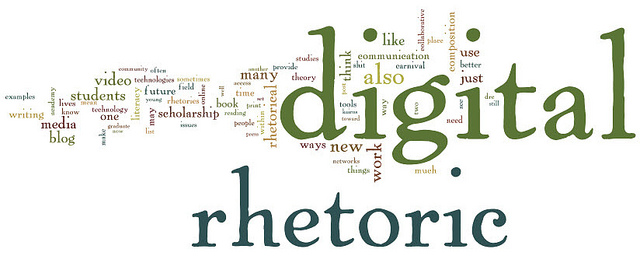The preface and first chapter of Economics of Attention attempt to set the stage for what is to come. The author tells us that this book is written to answer the narrow question: “What happens when words move from printed page to electronic screen?”
The answer, it turns out, is a transition to the age of the economics of attention, which, for the author, is simply another way of saying rhetoric. He describes this shift in various ways: from sciences to arts and letters, from stuff to what we think about stuff (fluff). The major difference is that we now face an information glut. Grabbing someone’s attention is now crucial, lest our message get lost in the glut.
Visual designers, and particularly those working on human-computer interfaces, are a prime example of the rising importance of attention. The goal of design is to draw attention to what is important. This is the entire impetus behind companies’ building of brands. Whereas the page was designed to encourage concentration, the web is open to more colors, images, videos and sounds that all compete for our attention and distract us.
From here, we get a brief overview of what rhetoric actually is, with a hint of the conflict between rhetoric and science and rhetoric and philosophy throughout the ages. In short, some in science and philosophy accused rhetoric of using emotion and word games to persuade people away from truth. For this reason, Plato was one of the major critics of rhetoric. The author argues that this messiness and shifting ground, however, is necessary for democracy. As it’s written, I feel as if I’m meant to infer from this line that this use of rhetoric as a necessary component of democracy is supposed to restore rhetoric’s glory. He doesn’t mention that Plato also was not a fan of democracy, which seems an important omission in this context.
Interestingly, he also links postmodernism to a revival of rhetoric, but only the aspect which looks for the special interests behind the argument.
The major section of this chapter is devoted to background conversation, where the author explains what other work he read as part of this project. I found this odd, boring, and not particularly more useful than a further reading list might be, though much wordier. Yet, it does seem consistent with Lanham’s own argument that where an idea comes from is important.
Mixed in with these ramblings, though, were a few interesting thoughts, one in particular which stood out for me:
“The more odious you might find that opposing opinion, the more you should seek to know what would make someone hold such an opinion. And the more you should examine the grounds on which you hold your own. This self-examination is, and ought to be, a humbling experience.” (p. 26)
Here the author is addressing what a training in rhetoric can do, and this type of stance is something I embrace enthusiastically, and which I developed myself studying philosophy. In contemporary culture, I think we tend to very easily write off people who hold different opinions as simply crazy, or perhaps stupid. But for me, it’s important not to automatically dismiss that view, and to dig deeper into understanding why they hold such a view. This has met a lot of resistance among some of my friends, who have bluntly asked me questions such as: “If you know what you believe, why do you care what anyone else thinks?”
Questions:
1. Why do we / should we care what anyone else thinks? I’m especially interested in this question outside of academia. Should the average person care about the differing religious views that others hold, for example? Or differing science views? If we disagree, does it make more sense to look into reasons that support our view, or to look into reasons that support the view with which we disagree?
2. Do you buy Lanham’s recasting of rhetoric as an economics of attention? I’m sure this is an issue that the rest of the book will explore in much greater detail, but after reading the first chapter, I’m left with the question: “Is attention enough?” I agree that as a society, we are more and more distracted, and it’s harder and harder to grab attention. But is the goal only to grab attention? Isn’t there more to it than that?
